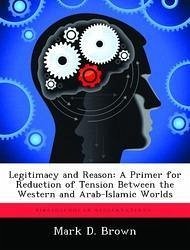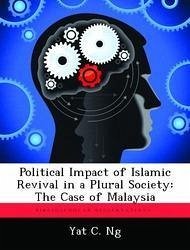Nicht lieferbar

Legitimacy and Reason: A Primer for Reduction of Tension Between the Western and Arab-Islamic Worlds
Versandkostenfrei!
Nicht lieferbar
This monograph attempts to define the underlying cause of today's tension between the Western and Arab-Islamic worlds, along with identification of existing similarities which can be utilized and exploited to bring about common understanding and peaceful resolution. The cause is determined to be differing perceptions of legitimacy. To develop a common understanding of why these differences exist, the monograph demonstrates the continuing applicability of classical Greek logic and reason as taught by Plato and Aristotle and interpreted by early prominent Arab-Islamic philosophers. Common though...
This monograph attempts to define the underlying cause of today's tension between the Western and Arab-Islamic worlds, along with identification of existing similarities which can be utilized and exploited to bring about common understanding and peaceful resolution. The cause is determined to be differing perceptions of legitimacy. To develop a common understanding of why these differences exist, the monograph demonstrates the continuing applicability of classical Greek logic and reason as taught by Plato and Aristotle and interpreted by early prominent Arab-Islamic philosophers. Common thought provides the basis for timeless understanding of common problems, issues, and concerns. Divergent thought, grounded in religious dogma and myth, opens windows toward political opportunism, isolationism, misunderstanding, and fear. Grounding in similar classic thought provides the initial ability for both sides to address the tension through common logic and reason. Attention is then paid to ascertaining the political, social, and religious similarities present today and in seventeenth century Great Britain- the context for formulation and testing of the logical political theories presented in Thomas Hobbes' Leviathan and John Locke's Second Treatise of Government. Hobbes' and Locke's theories addressing states of nature and political legitimacy form the baseline for understanding today's tension in purely Western terms. Their theories are grounded in similar concerns over security, authenticity, political representation, religious freedom, self-determination, and economic prosperity, and both are devoid of unfounded and divisive rhetoric. These same political, social, and religious conditions are present, in modified form, in today's tension between the Western and Arab-Islamic worlds, and therefore both philosophers theories can be utilized in explaining, understanding, predicting, and judging today's outcomes. Continued misunderstanding of common issues and concerns leads







